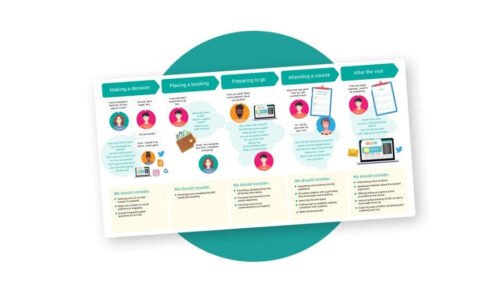How do businesses and consumers stay protected while using the internet? What role do ISPs play in safeguarding users against cyber threats? Security is paramount nowadays. Businesses and consumers rely on network providers to protect their data and ensure a safe online experience. But how exactly do ISPs manage this? This article will explore the methods ISPs use to secure their networks and keep both businesses and consumers safe.
The Role of ISPs in Network Security
An internet service provider acts as the gateway to the internet, managing data flow for millions of users, making them critical to online security. Both businesses and consumers depend on ISPs to access and transmit data, so the security measures they implement are essential for protecting against cyber threats like malware, phishing, DDoS attacks, and data breaches. Network providers utilise various strategies to secure their networks and ensure safe and reliable internet access for all users to combat these threats.
Tools and Techniques ISPs Use to Secure Networks
1. Firewalls and Intrusion Detection Systems (IDS)
Firewalls are a fundamental yet powerful tool ISPs use to protect their networks. They act as a barrier between trusted internal systems and external threats. Alongside firewalls, Intrusion Detection Systems (IDS) monitor for unusual activity, alerting network providers to potential attacks and allowing them to prevent malicious actors from infiltrating the network.
2. Encryption for Data Protection
ISPs use encryption as a critical method to protect data, ensuring that information transmitted across the network is unreadable to potential interceptors. This is crucial for businesses handling sensitive financial information and intellectual property data. For consumers, encryption safeguards personal details during online shopping or banking, providing peace of mind and reducing the risk of data breaches.
DDoS Protection and Prevention
Distributed denial-of-service (DDoS) attacks are a common threat that can severely disrupt business operations or overwhelm consumers by flooding a network with excessive traffic, causing slowdowns or outages. To mitigate these attacks, ISPs use several techniques, including traffic filtering to block malicious data, rate limiting to control data flow and prevent overloads, and blackholing, which reroutes harmful traffic to a null destination. These strategies protect businesses and consumers from the disruptive effects of DDoS attacks, maintaining uptime and service reliability.
How ISPs Help Businesses Stay Secure
1. Customisable Security Solutions
Businesses often need tailored security solutions. ISPs provide customisable options such as Virtual Private Networks (VPNs) for securely connecting remote employees, dedicated firewalls to protect critical data, and real-time monitoring for immediate threat detection. These tools help businesses operate securely across industries, regardless of their size.
2. Data Backup and Recovery
Another critical aspect of security for businesses is the ability to recover from cyberattacks or data breaches. ISPs often provide backup and recovery services that store essential data in secure locations. If a network is compromised, the business can quickly recover its data and resume operations with minimal downtime.
Safeguarding Consumers in the Digital Age
ISPs play a vital role in safeguarding consumers’ personal data and providing a secure online experience, especially as more people engage in banking and online shopping. To combat phishing attacks, ISPs implement email filtering to block malicious emails and URL blocking to prevent access to dangerous websites, ensuring safer browsing. Additionally, they offer parental controls and content filtering, allowing families to block harmful websites and set time limits for internet usage. These tools protect against scams and help create a safer online environment, particularly for children and vulnerable users.
An Internet service provider is essential in safeguarding businesses and consumers from an ever-evolving array of cyber threats. In an era where online threats are more prevalent than ever, ISPs are the silent protectors that keep the internet running smoothly for everyone. By staying ahead of the curve with cutting-edge security measures, ISPs ensure that businesses and consumers enjoy a secure, reliable internet experience.









































































































